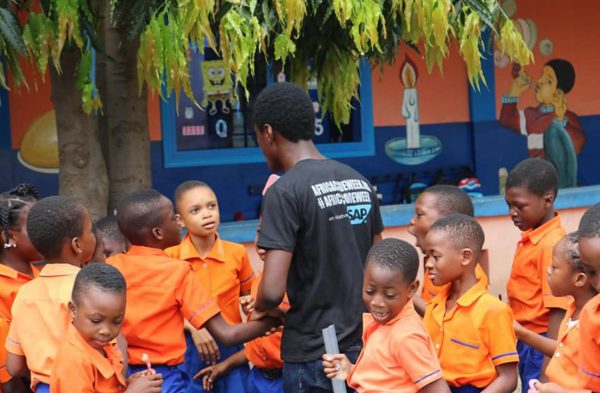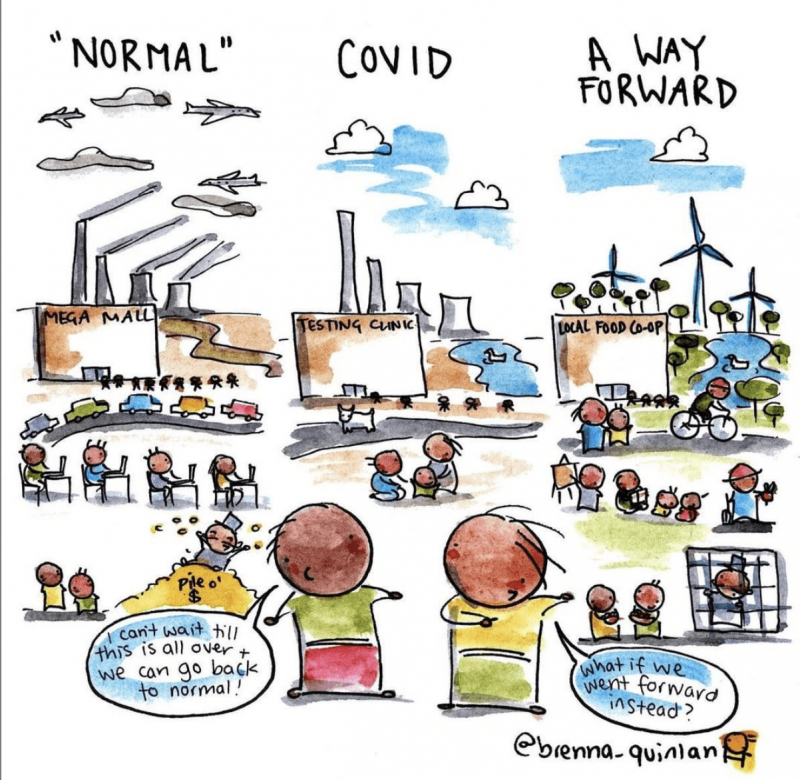An inspiration for all generations
Innovation

June 8, 2020, 5:42 am
As the winner of the 2020 Zayed Sustainability Prize in the Food category, Mustapha Diyaol Haqq is using his coding and artificial intelligence skills to make a difference, from teaching youth how to code to helping farmers in Ghana protect their crops from disease and pestilence
From humble beginnings and no access to a computer or the internet at home, Mustapha Diyaol Haqq has come a long way since teaching himself how to code at the age of 15.
Growing up in the Ashanti region of Ghana, Mustapha relied on internet cafes to learn how to code, sacrificing his lunchtime to participate in free online courses on public computers.
“It was hard navigating the computer programming scene as there were no mentors or learning resources available to me. I had very limited access to a computer or the internet,” says Mustapha, who is now 20 years old. “My journey into the technology space is mostly inspired by global technology success stories. I knew I could utilize technology where it was needed the most.”
Empowered by his coding abilities, Mustapha realised that his skills could be put to good use by helping other youth to learn how to code. He joined the Ghana Code Club as a content developer and made it his mission to create and curate valuable learning experiences for younger generations to succeed in the 21st century digital world.
“The artificial intelligence [AI] curriculum project was a special project which was dear to me personally because of the recent waves it has been making and the huge potential it presents,” Mustapha says.
“The objectives of this project are to demystify AI for the next generation and provide hands-on experience to empower them to create solutions to existing problems in our community. The focus on the curriculum is on Machine Learning Fundamentals, Computer Vision, Speech Synthesis and Emotion Recognition. All are carefully curated in a fun and engaging way.”
Launched in 2015, the Ghana Code Club is an after-school program that teaches children, particularly girls, aged from five to 17 computer programming skills, giving them the knowledge and confidence to harness the power of technology to achieve economic and personal fulfilment. Since its establishment five years ago, the Ghana Code Club has trained 50,000 children and launched a variety of training programs.

Mustapha spends time with kids of the after-school programme
These include Code on Wheels, which sees instructors travel to disadvantaged communities to teach digital literacy to young girls and women with the aim of creating a new generation of entrepreneurs. Another program Ghana Code Club introduced was its “100 Girls in Apps Development”, which aims to train 100 young girls in mobile app development every year.
“We have certainly achieved so many milestones and I am very proud of that,” says Mustapha. “That being said, our achievement that I am most proud of is the AI Curriculum Pilot Program. Seeing these kids who I helped to train apply the curriculum we built to develop innovative solutions of their own is definitely an impact I can’t forget!”
But it is not just youth that Mustapha is seeking to empower. Through his start-up venture, Okuafo Foundation, which he founded in 2018, the young entrepreneur has set his sights on food security and is working with more than 600 farmers in Ghana to protect crops through their free intelligent apps that diagnose and predict diseases.
Okuafo Foundation, which aims to achieve food security, improve nutrition and promote sustainable agriculture, recently won the 2020 Zayed Sustainability Prize’s Food category for its innovative solutions, marking a proud moment in Mustapha’s journey towards helping others.
“When I was 19, before we won this prestigious award, my mantra had always been, ‘I define myself as a 19-year-old revolutionary dreamer walking the path my ancestors paved’. Now I am 20 years old and we have exactly a decade to achieve the United Nations’ Sustainable Development Goals [SDGs]. With my contributions to SDGs 1, 2, 3, 4, and 5, winning this award has served as a catalyst to my personal mission and the general mission of the Okuafo Foundation,” Mustapha says.
“The funds will be geared towards expanding our capacity as an organization in order to be able to serve more smallholder farmers across Ghana and Africa at large. We want to build the future of agriculture for the rural farmer. And this award has made it possible.”
While one of the aims of Okuafo Foundation is to ensure that no crop is lost to pest infestations, the start-up is also targeting a reduction in the amount of chemicals that go into the soil and pollute the environment – and the AI apps that Mustapha has developed is helping them to achieve these goals.
“Look who shook hands with His Highness Sheikh Mohammed Bin Zayed! Me! Mustapha, the young boy from a small community in Ghana.”
“Qualitatively, the dashboards and crisis maps we are working on will provide real-time data on how much, where and when greenhouse gases [GHG] are emitted. These updates will help governments and NGOs in their policymaking, to ensure the huge players in GHG emissions are targeted to reduce the amount of emissions. When farmers have access to a real-time scientific knowledge base and tools to help check for pests themselves – including taking sustainable actions in fighting the pests – this means that families in rural areas can now enjoy nutritious meals and have enough to last them till the next farming season.”
As Mustapha’s journey continues and his Okuafo Foundation expands to help more farmers in Africa, he advises others to believe that anything is possible.
“If you are reading this and you are a youth like me, just know that everything is possible. People used to say this, and I never believed it – I thought success was based on luck, or that only people living in certain demographics can achieve a high amount of success in their fields,” he says. “But hey, look who shook hands with His Highness Sheikh Mohammed Bin Zayed! Me! Mustapha, the young boy from a small community in Ghana.
“To the older generation reading this, I say look out for us; the youth has much more to offer. Support us, advise us and provide us with the guidance we need and together we will create the future we all envisioned – a peaceful world.”
Are you ready to make a difference?
The world’s youth are the future, and their ability to spearhead positive changes and implement sustainability practices will be vital to the world’s social and economic development in the years and decades to come.
The Zayed Sustainability Prize’s Global High Schools category recognises high schools from six global geographic regions, including the Middle East, that propose innovative, impactful and inspirational sustainability projects in the areas of health, food, energy and/or water. The proposed project could be in one area (e.g. water) or a combination of areas (e.g. energy, water, food, and health). The Prize is intended to encourage students to develop and implement their sustainability ideas in their own schools and must inspire other students to take active roles in sustainable development. The application must be submitted by the students and supported by the school management. The projects must:
- Be able to be implemented and operational within one to two years
- Benefit the school community and/or their local/regional community for several years
In each of the six global regions, one school will win up to US$100,000. If you believe you have a project that could win the Zayed Sustainability Prize, submit your entry online today!
If you are a small-to-medium sized enterprise or non-profit organisation with an existing innovative, impactful and inspirational solution, you can also compete for the chance to win US$600,000 to scale up your solution. Make your mark by submitting your entry under the Health, Food, Energy or Water categories, before the June 11th deadline.










